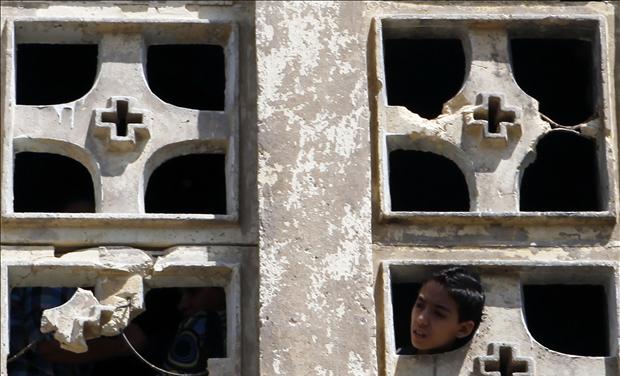Hindraf believes it still has the 'power' to swing votes and that Pakatan is making a mistake by ignoring its overtures.
ANALYSIS

Hindraf Makkal Sakti and its offspring Human Rights Party (HRP) are blithely wooing Pakatan Rakyat to forge an electoral alliance to face its common enemy – Umno-helmed Barisan Nasional – in the fast-approaching 13th general election.
But signs are clear that Pakatan is not interested.
Pakatan allies – PKR, DAP and PAS and, to a certain extent, Parti Sosialis Malaysia (PSM) – may have realised that Hindraf was the most influential factor that convince the Indian voters to shift their traditional allegiance with BN in the last general election.
Many Pakatan candidates were seen then working hand-in-hand with Hindraf activists to secure votes.
The Indian swing contributed to Pakatan’s massive electoral gains at the expense of BN.
But post-2008 election, Pakatan has practically decided to end its marriage with Hindraf, especially after the formation of HRP.
Pakatan is aiming to win over the Indian votes without Hindraf’s support.
Pakatan’s body language signals that it is happy with current set-up and does not want to include Hindraf and its political offspring HRP.
Fed up with Pakatan
HRP and Hindraf’s constant criticisms, justified in many cases, against Pakatan state governments for not doing enough or nothing at all for the Indian community, have not gone down well with Pakatan’s top brass, especially the Indian elected representatives.
Apparently ethnic Malay and Chinese leaders in Pakatan do not want an Indian-based party in their fold.
“They would rather prefer ethnic Indian individuals… to join PKR or DAP.
“In that way, the Pakatan top brass – dominated by Malays and Chinese – can control, tame, weaken and breed the Indian elected representatives as their mandores.
“Pakatan definitely did not want a strong grassroots movement championing the Indian cause within its sphere,” said a political observer.
But despite Pakatan’s virtual rejection, the Hindraf-HRP axis still dreams of teaming up with Pakatan merely to vote out Umno-BN from Putrajaya.
Hindraf-HRP adviser N Ganesan told newsmen last week that the group’s immediate political objective was to remove Umno from power.
“This is important to enable us to achieve our long-term goal to eliminate racist and religious supremacist state-sponsored policies trampling on the rights of minorities,” he said.
Both Hindraf and HRP have realised that this could not be achieved without forging close working ties with Pakatan.
Indications are that the next general election could be quick snap polls and just around the corner.
Pakatan to lose states
If recent Hindraf brainstorming session in Singapore is anything to go by, Pakatan would fail to capture its holy grail, Putrajaya.
According to Hindraf’s analysis, Pakatan stands to lose between 22 and 50 state seats and 10 and 18 parliamentary constituencies across the country in a 20 to 50 percent Indian vote swing.
Hindraf claims Pakatan would lose Kedah and Selangor, and would not regain Perak.
Hindraf analysts also claimed that eight cabinet ministers risked losing their seats. Even some segments of Pakatan’s own grassroots believed in the computation.
They conceded that Hindraf-HRP could make a decisive difference in the next election.
But, unlike in 2008 when Hindraf gave a free lunch to Pakatan by throwing its support behind the opposition coalition, this time it wants Pakatan to make some seat concessions for HRP.
Hindraf has Indian support
Critics, however, argued that Hindraf was taking too much credit for Pakatan’s electoral success in 2008.
Of course, Indian votes alone did not win the day for Pakatan.
Significant shifts in Malay and Chinese votes were also a major reason for Pakatan’s win.
That explains why Pakatan leaders now prefer to play into the popular bi-racial gallery comprising the ethnic Malay and Chinese vote banks, rather than actualising the multi-racial concept.
Critics have also argued that Pakatan and Hindraf were not competent for each other because of the latter’s Indian agenda.
But then both groups were competent in 2008.
Hindraf-HRP claims that it can move Indian votes for Pakatan, especially the working class Indians who make up some 70 percent of the community.
Hatred for Umno
Critics argued that most well educated Indians were not with Hindraf-HRP because they despised racist politics.
“Educated Indians feel they would be better off under Pakatan than Hindraf,” they said.
But a random survey among educated Indians revealed most backed Hindraf’s Indian stance and acknowledged that Pakatan had done “very little” for the Indians.
Indeed, most argued that the Malays and Chinese have gained the most from the 2008 political change, while ethnic Indians, who were instrumental for it, were largely sidelined and isolated.
“For Pakatan, Malay issue is a national issue and Chinese issue is a multi-racial issue.
“But an Indian issue is a racial issue,” said a national school Indian teacher.
Their hatred for Umno is the only factor stopping these well educated Indians from going back to BN.
The Pakatan strategy is to capitalise on this sentiment to fish educated Indian votes without Hindraf-HRP support.
But the Hindraf-HRP alliance believes Pakatan would fail without it.
Tricky question
The alliance is putting its faith in Indian voters whom they believe will respond to it in the next polls as they did the last time.
“Pakatan and Hindraf-HRP must work together to end Umno’s rule,” insisted Ganesan.
Hindraf-HRP has already offered an olive branch to Pakatan to work together for the next polls to oust Umno and company from the federal government.
But Pakatan is unlikely to entertain it because some leaders and supporters believe that HRP candidates would lose their deposits if they contested alone.
But Hindraf-HRP leaders believe they have nothing to lose and, moreover, they would gain more political strength by taking the centre-stage in the next general election.
They insist that it is Pakatan which has more to lose with non-cooperation.
It looks like this is shaping up to be a one-upmanship political game between Pakatan and the human rights socio-political movement.
With election around the corner, any cooperation would have to take place fast.
For cooperation to happen, it will take a great deal of wisdom to shake off egos, arrogance and short-sighted thinking.
Whether Pakatan will ever accept Hindraf-HRP axis into its fold will remain a tricky question.








 “The
investigation results concluded that there were unethical actions which
were beyond the SOP of the Royal Malaysian Police when enforcement was
performed on rally participants who were wrongly using the hospital
premises,” said Mahmood.
“The
investigation results concluded that there were unethical actions which
were beyond the SOP of the Royal Malaysian Police when enforcement was
performed on rally participants who were wrongly using the hospital
premises,” said Mahmood.  “However,
allegations that there was tear gas fired inside the hospital compound
are not true because it happened at a public carpark outside the
hospital compound,” said Mahmood.
“However,
allegations that there was tear gas fired inside the hospital compound
are not true because it happened at a public carpark outside the
hospital compound,” said Mahmood.  “(The
Home Ministry) will not compromise on disciplinary action if it is
found that there are (staff) who are proven to have violated operational
guidelines,” he said.
“(The
Home Ministry) will not compromise on disciplinary action if it is
found that there are (staff) who are proven to have violated operational
guidelines,” he said. 






